140118
_______________________________________________________________
SERIES: AMERICAN CONCERNS This Post is the third in a Series asking: About what problems are American intellectuals and policymakers most worried? This Post treats concerns about the long run, particularly scientific. Other Posts treat concerns about short run politics (140104), middle run economy (140111), and China (140125).
_______________________________________________________________
AMERICAN CONCERNS: LONG RUN SCIENCE
140118

This Series on American Concerns was inspired by an exercise on a site for scientists called Edge. Every year it asks its scientists to comment on some topic – for 2013, “What should we be worried about?” This Post reports some of the scientists’ concerns about the long run.
(For all responses, see . Or John Brockman ed. 2014 What should we be worried about? Real scenarios that kept scientists up at night. New York NY: Harper Collins, 538 pages. Kindle $9.98.)
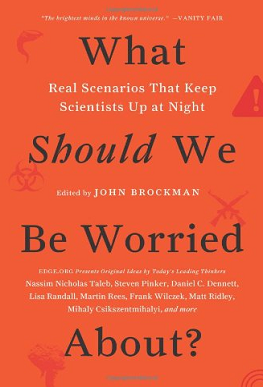
Many scientists were concerned about social SYSTEMS. Some trends – communication, connectivity, competition – certainly have their good sides. But those same trends could also cause systems to break down, even quickly and unexpectedly.
Many scientists were concerned about SCIENCE. Some were confident about science itself, but feared that laymen don’t understand it. However, some scientists worried that science itself is losing its productivity, or even becoming counter-productive.
Finally, some scientists were concerned about human SURVIVAL. Even without adverse human influences, a habitable Earth will not last forever. Humans have little chance to move elsewhere. The universe is a dangerous place.
Many of the concerns raised were about society, even though few of the responders were social scientists. This Post selects responses that brought scientific ideas to bear on social problems, or that were based on scientists’ expertise about science.
One non-scientist (the artist Brian Eno) dared to say that the problem with “smart people“ (and with Edge) is that “we don’t do politics.” “ We expect other people to do it for us, and grumble
when they get it wrong. ”

SYSTEMS <1>
Many scientists were concerned about new developments in social SYSTEMS.
Institutional problems 1.1
One academic (John Naughton) lamented the increasing prevalence of “incompetent systems” – institutions that do not perform their functions well. A neuroscientist (Sam Harris) attributed this to “the power of bad incentives” to distort performance – a problem not of human psychology but of institutional design (what social scientists call “perverse incentives”). One of the founders of Wikipedia (Larry Sanger) regretted the “silos” now within it that now segregate people into discourses that are isolated from each other. Bridging institutional and systemic analysis, an engineer (Seth Lloyd) proposed a model that equally explains the outbreak of the 2008 Financial Crisis and the appearance of Black Holes in the universe!
Systemic problems 1.2
Many scientists worried about “the fragility of complex systems” (Randolph Nesse) and the resulting “world of cascading crises” (Peter Schwartz). Evidently “too much coupling” can abruptly destabilize such systems (Steven Strogatz). Meanwhile, increasing communication is increasingly homogenizing world culture (Scott Atran), reducing the diversity on which humans can draw to solve problems. We do not understand “the dynamics of our emerging global culture” well enough to spot problems and fix them (Kirsten Bomblies).
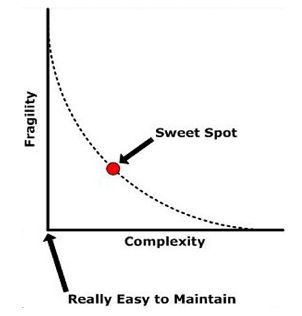
SCIENCE <2>
Many scientists were concerned about SCIENCE.
Problems with society 2.1
Many scientists worried that the rest of humanity is not keeping up with them. As one piece put it bluntly, “Worrying about stupid” (Roger Schank). Or “the growing gap between the scientific elite and the vast ‘scientifically challenged’ majority” (Leo Chalupa). One piece anticipated a “coming fight between engineers and druids” (Paul Saffo).
Meanwhile, technology is making the public even dumber, as users lose the skills that technology provides. Technology also weakens previous human methods of self-correction, as interaction with machines replaces interactions with other humans (Tania Lombrozo).
Several scientists worried about the role of MEDIA. Popular culture largely ignores science in favor of entertainment but nevertheless becomes a major public forum for (uninformed) public discussion of important issues (Bruce Parker). One piece addressed the presentation of science through social media, worrying that as people increasingly distrust social media they will increasingly distrust any science that social media present (Michael Norton).
The New York Times science editor (Barbara Strauch) worried that, just when part of the public became more interested in science, the amount of good media reporting about science declined. Meanwhile, such good science reporting as there is might be giving people the illusion of understanding things they have not really mastered. People learn things better if they have to overcome some difficulty (Adam Alter).
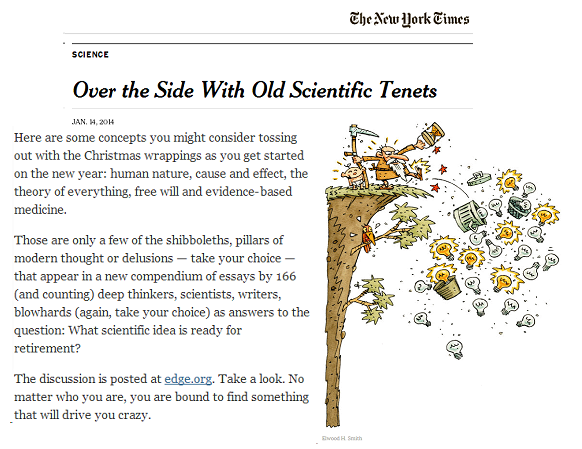
A nuanced piece worried that basic human social intuitions are not keeping up with changing technology (David Pizzaro). As a result, people resist the introduction of technologies that would benefit themselves and society. For example, the fact that organizations assemble vast amounts of information about you does not necessarily mean that any PERSON has the INTENTION to “spy” on you. (But what if it does?)
A nuanced piece (by Nikolas Christakis) worried that government funding, inevitable now that science research has become so expensive, leads to government meddling, inevitable when politicians see political gain. Given the reliance of science on public funding, scientists worry when politicians and public mistakenly suppose that science has “failed” (Stuart Firestein).
Problems within science 2.2
Some scientists worried about problems within science itself.
Some saw dysfunction in science publishing and scientific careers. Both publication and promotion demand novel discoveries, not just replicating or disconfirming previous findings. But replication is essential to sound science (Marco Iacoboni). Relatedly, scientific journals are too obsessed with their own “impact” as measured by citations in other publications (Bruce Hood). In this highly communicative and competitive environment, scientists themselves are susceptible to “mass delusions” (John Tooby).

Others saw problems in basic scientific methods. One (Bart Kosko) lamented that science continues to rely on only five kinds of PROBABILITIES, when in fact there are many many more kinds. Another (Nassim Nicholas Taleb, The black swan), had conclusively demonstrated the invalidity of most methods that scientists use to assess the probability that their findings are correct, a demonstration that was widely publicized and widely acclaimed. Nevertheless, Taleb complained, in their subsequent practice, scientists had continued to use the invalid methods.
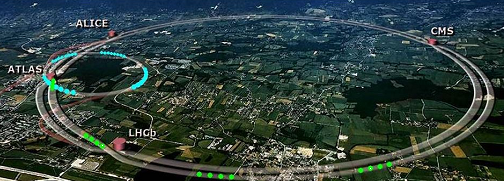
Some scientists worried that science is encountering increasingly fundamental problems in nature. For example, physics has presented the recent observation (at CERN) of an expected fundamental particle (the Higgs Boson) as a triumph of theory (The Standard Model), which indeed it was (Amanda Gefter). However, there are some things that The Standard Model doesn’t explain. Many physicists had hoped to discover unexpected particles that would help them revise the theory (Peter Woit, Steve Giddings).
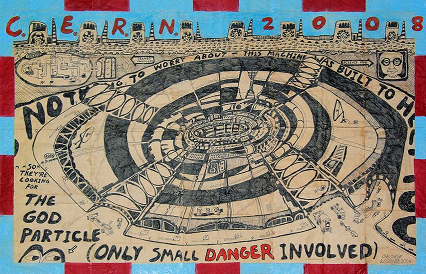
Emerging anomalies needn’t portend “the end of fundamental science,” but they might require some fundamentally new approaches (Mario Livio). Some astrophysicists worry that, although there MAY be many universes, we can observe only one of them. Moreover, as that universe expands, more and more of it is disappearing from sight! Eventually scientists may become unable to test theories, just debate them (Lawrence Krauss). An historian of arithmetic (Keith Devlin) even worried about “the death of mathematics” as we know it.
SURVIVAL <3>
Finally, some scientists worried about human SURVIVAL, social and physical.
Social survival 3.1
A physicist listed ways in which “technology may endanger democracy” (Haim Harari). The two are becoming increasingly “out of sync.” For example, technology creates problems with longer and longer times scales, while at the same time placing politicians under pressure for quicker and quicker solutions. Managing technology requires scientific training that democratic leaders mostly lack. Democracy may need some redesign to adapt to its emerging technological environment.
One response (by Paul Kedosky) outlined how previous human history has limited future human options (what social scientists call “path dependence”). Another response (by Mihaly Csikszentmihalyi) detailed consequences of “the triumph of the virtual over the real.” Still another (by David Dalrymple) sketched a “posthuman geography” in which, amid a wash of cyber-communications, individual human persons could no longer be identified! Against fears that humans will be upstaged by robots, a philosopher (Andy Clark) argued that humans still have an edge: cumulative human culture, minutely attuned to human capacities and proclivities.

Physical survival 3.2
Some scientists (e.g., Timothy Taylor) give increasing credence to the possibility of a human “Armageddon” (complete destruction, as repeatedly happened to an ancient settlement of that name at a strategic location in the Middle East). Some scientists worry that humans have become trapped on the earth, “rats in a spherical trap” (Gregory Benford). “We are in denial about catastrophic risks” (Martin Rees). With or without human influences, a habitable Earth will not last forever (Toombs ). Humans have little chance to move elsewhere (Ed Regis).
The universe is a dangerous place. But one precaution is now too late: attempting to conceal our electromagnetic radiations – such as radio and television – from aliens who might attack us (as cosmologist Stephen Hawkings has advised doing). Any aliens with the technological capacity to threaten us would also have the capacity to detect us, and would have noticed our radiations long ago (Seth Shostak).
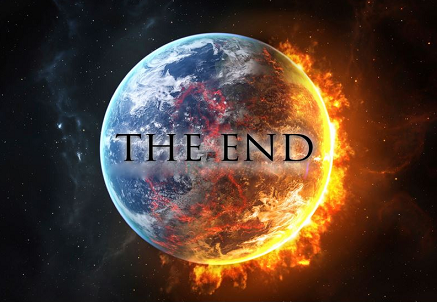
0
推荐




 京公网安备 11010502034662号
京公网安备 11010502034662号 